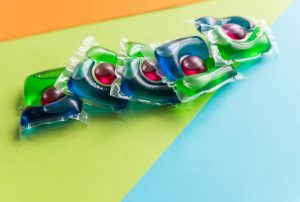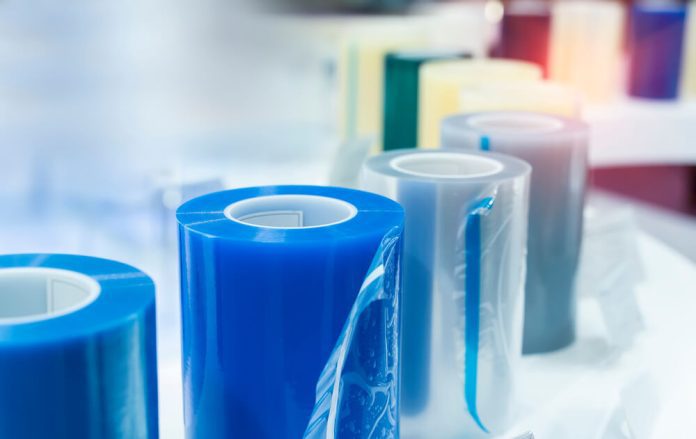Polyvinyl alcohol is used in many applications in various industries. It’s used for bonding materials, creating a protective layer, and improving the quality of existing products like paper and textile. However, one of its typical uses is for producing film and packaging.
Polyvinyl alcohol (PVA) is created through hydrolysis of polyvinyl acetate (PVAc). It’s the process of dissolving PVAc through alcohol, commonly methanol. After hydrolysis, you’re left with an odorless and colorless synthetic polymer helpful in producing film and packaging for various products. To dig deeper, here are some notable properties and benefits of PVA for film and packaging.
-
Biodegradable
Film and packaging made with polyvinyl alcohol are biodegradable. This compound offers a practical solution to the world’s waste management problem. Since eliminating product packaging is almost impossible, an eco-friendly alternative is the best option.
PVA can undergo organic degradation. Unlike other packaging materials made with polyethylene, it can be broken down by bacteria and fungi. It’s more sustainable, economical, and eco-friendly.
Some trusted polyvinyl alcohol manufacturers offer specific grades suitable for your film and packaging needs. Aside from being biodegradable, PVA ensures the quality of the packaging materials. It can keep a wide array of products safe in changing environments.
-
Oil And Grease Resistant
Polyvinyl alcohol is used for oil and grease-resistant films for eco-friendly food packaging made of kraft paper. It creates a protective coating to keep the moisture in without destroying the paper. It’s useful for other delicate products that need an extra layer of moisture and grease protection.
Moreover, the oil and grease resistance of polyvinyl alcohol comes from its strength and flexibility. Its intact structure acts as a rigid barrier that repels most organic solvents. Thus, even at minimum add-on levels, PVA can make paperboard packaging safer and more durable.
-
Water Soluble And Odorless
Polyvinyl alcohol is water soluble. PVA films commonly used in thin and flexible packaging and pill capsules require dissolving a specific amount of PVA in water. Manufacturers offer them in granules, powders, or solutions, depending on the specified use.
Since PVA is water soluble, it poses a lower risk of water pollution than plastic. However, proper disposal is still a priority since it’s only harmless at a certain concentration level. It’s still best to guide your consumers on how to dispose of or degrade the used polyvinyl alcohol packaging properly.
-
Low Toxicity
Film and packaging made with polyvinyl alcohol have very low toxicity. Specific grades of PVA can also be non-toxic, especially those used in drug capsules, pill coatings, and skincare products. In addition, materials that may end up in the ocean aren’t harmful to marine life as long as the concentration doesn’t exceed 5%.
Vinyl polymers commonly used in packagings, such as polypropylene, polyethylene, and polystyrene, pose specific hazards. Although some of these are safe for food packaging, they can still cause certain health risks for wildlife upon disposal. Polyvinyl alcohol is the only biodegradable polymer that has very low toxicity.
-
High Tensile Strength
Polyvinyl alcohol enhances film and packaging’s tensile strength. It resists breakage stronger than other materials, making it more suitable for creating a rigid barrier. Additionally, it’s used as a protective coating for various products and materials like paper and textile to keep them safe despite changing conditions.
Durability is imperative for film and packaging, especially for liquid products like laundry detergents and dish soaps. Some manufacturers choose polyvinyl alcohol for cleaning pods since it’s strong enough to prevent spillage while being soluble when already in use. PVA provides an economical and eco-friendly option for packing liquids and pastes.
-
Flexible
Plastics are known for their flexibility. However, polyvinyl alcohol’s tensile strength makes film and packaging more flexible despite being thin. This property makes PVA suitable for numerous applications.
Polyvinyl alcohol’s flexibility is one of its most remarkable properties for film and packaging. It is present in cling wraps for perishable goods like fresh produce. It’s also useful for transparent films and wraps to protect new home appliances and gadgets from scratch and chips.
-
Blocks Oxygen And Aroma

Polyvinyl alcohol’s capability to block oxygen and aroma makes it an excellent material for packing hygiene products and cosmetics. It keeps the fragrance molecules tightly trapped inside the packaging, maximizing its scent when in use. This property is utilized for manufacturing laundry pods, dish soaps, shampoo bars, and bath bombs.
Aside from keeping cleaning and cosmetic products fragrant, PVA also blocks air from penetrating the packaging. It can keep food products like crisps and biscuits crispy even after several months from production. Polyvinyl alcohol’s efficient oxygen-blocking capability is beneficial for preserving a wide range of essential everyday goods.
Conclusion
Polyvinyl alcohol has been used by many industries for decades, especially for film and packaging. However, its benefits and uses don’t end there. Many researchers are still finding ways to utilize it and how to make it more sustainable for long-term use.
Disclaimer: This article contains sponsored marketing content. It is intended for promotional purposes and should not be considered as an endorsement or recommendation by our website. Readers are encouraged to conduct their own research and exercise their own judgment before making any decisions based on the information provided in this article.





































